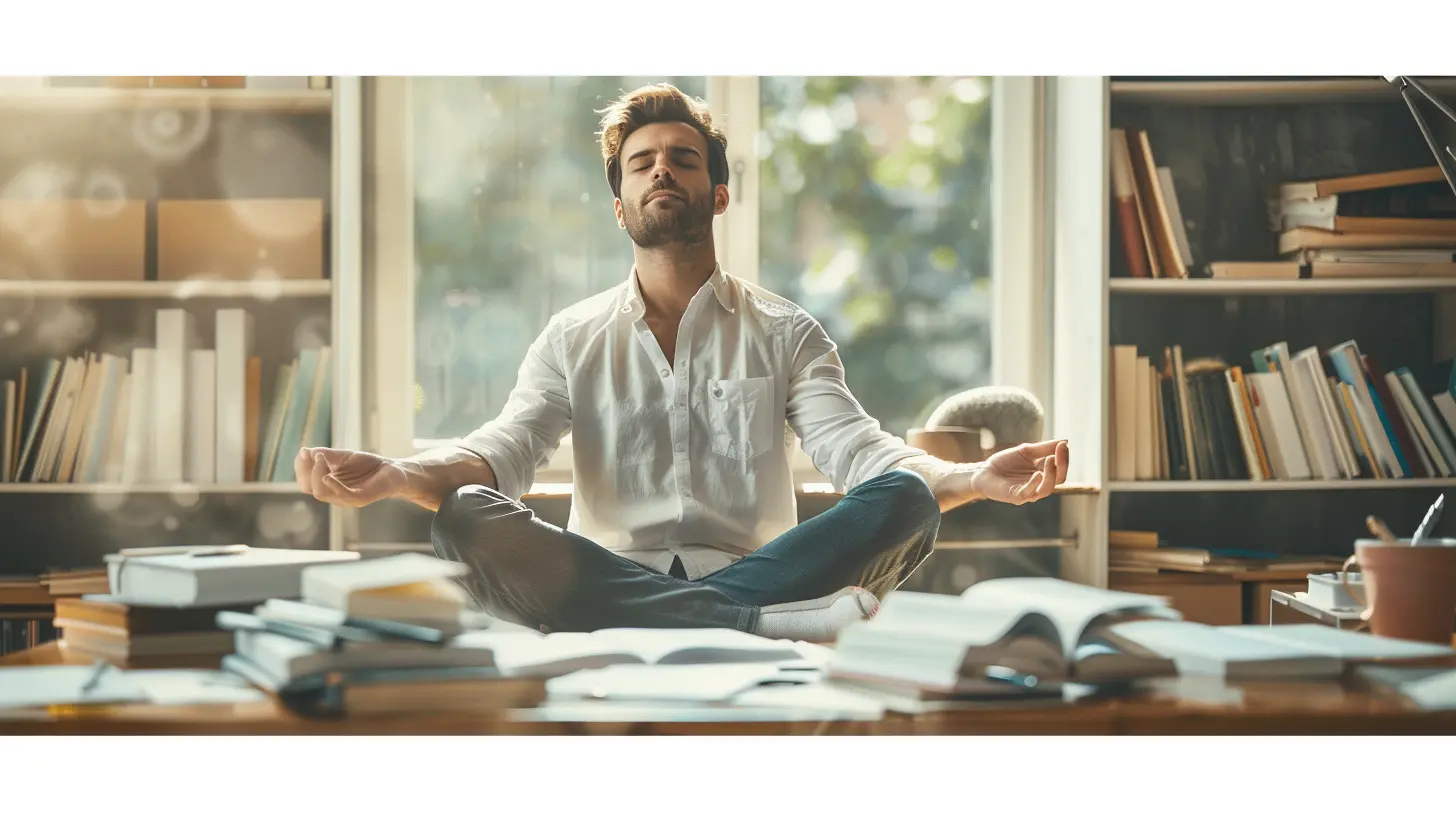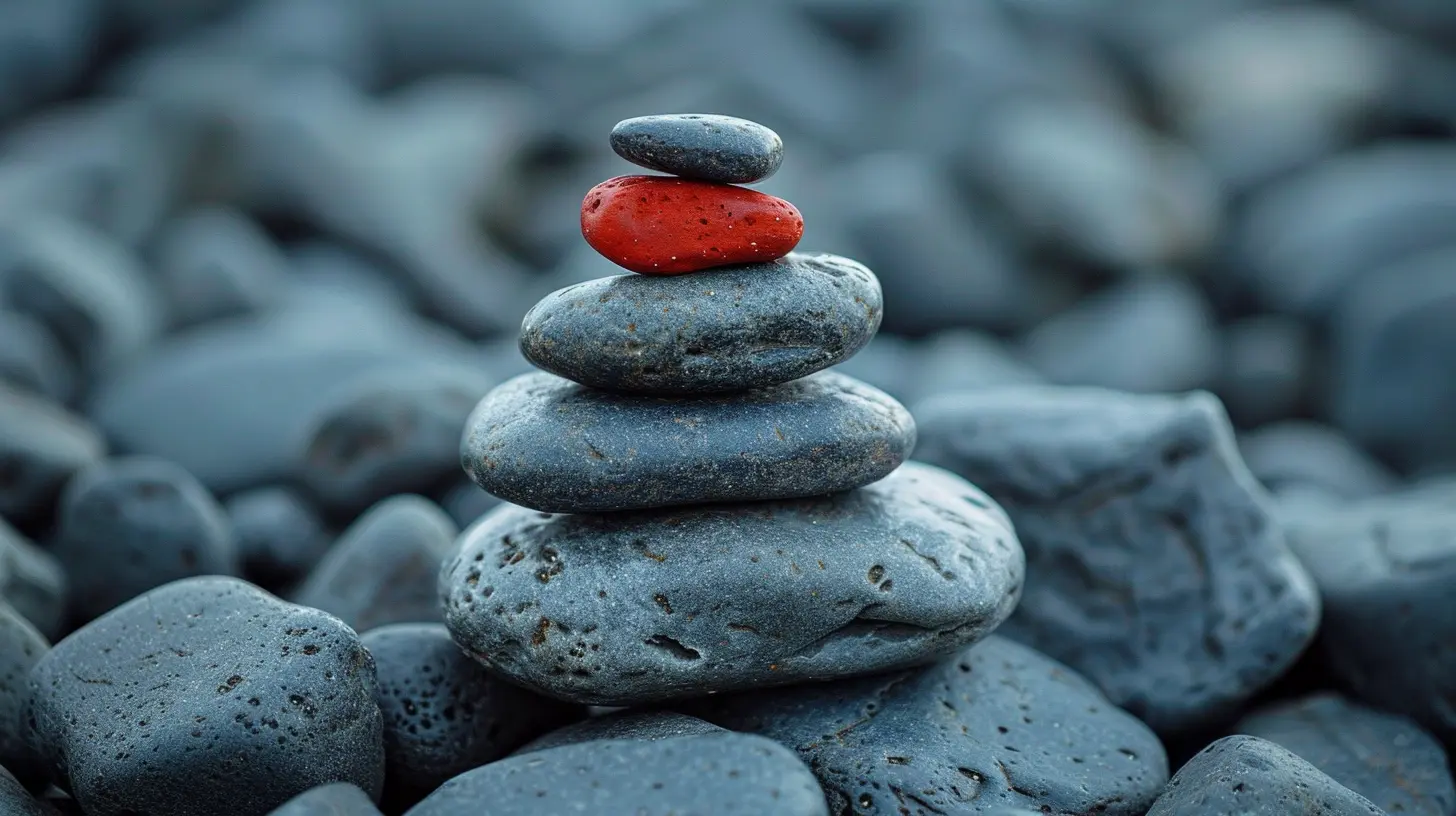Reducing Burnout: The Role of Meditation in a Busy Life
23 September 2025
Introduction
Feeling overwhelmed, exhausted, and emotionally drained? You’re not alone. Burnout has become one of the biggest health concerns in today's fast-paced world. Whether you’re juggling deadlines at work, handling responsibilities at home, or just trying to keep up with life’s demands, stress can pile up quickly.
But what if there was a simple, science-backed way to reset your mind, recharge your energy, and reduce stress? Enter meditation.
Meditation isn’t just for monks or spiritual gurus—it’s a powerful tool that anyone can use to combat burnout and regain balance in life. Let’s dive into the role of meditation in reducing burnout and how you can incorporate it into your packed schedule without making drastic changes. 
What Is Burnout and Why Should You Care?
Before we jump into meditation, let’s talk about burnout.Burnout isn’t just “feeling tired.” It’s a state of emotional, mental, and physical exhaustion caused by excessive stress. And it’s more common than you think.
Signs of Burnout:
- Constant fatigue (even after a full night’s sleep)- Feeling emotionally drained or detached
- Loss of motivation or reduced work performance
- Frequent headaches, stomach issues, or muscle pain
- Increased irritability or mood swings
- Difficulty focusing or making decisions
If any of these sound familiar, it’s time to take action before burnout takes a serious toll on your health. 
How Meditation Helps Reduce Burnout
Meditation isn’t just about sitting cross-legged and chanting “Om.” It’s a scientifically proven practice that helps calm the mind, reduce stress, and restore energy.1. Reduces Stress Levels
Studies show that meditation lowers cortisol levels—the hormone responsible for stress. Less cortisol means fewer stress-related health problems like high blood pressure, anxiety, and poor sleep.2. Boosts Emotional Well-being
Meditation helps increase awareness and emotional resilience. It allows you to observe your thoughts without being ruled by them, reducing anxiety and negative emotions.3. Improves Focus and Productivity
Ever feel like your brain is running a million tabs at once? Meditation enhances concentration and mental clarity, helping you stay productive without feeling overwhelmed.4. Enhances Sleep Quality
Burnout often leads to poor sleep, creating a vicious cycle of exhaustion. Meditation promotes relaxation and helps you fall asleep faster, improving overall sleep quality.5. Increases Energy Levels
By calming the nervous system, meditation restores energy and combats fatigue, so you feel refreshed rather than drained throughout the day.
Simple Meditation Techniques to Reduce Burnout
You don’t need hours of meditation to see benefits. Even 5–10 minutes a day can make a difference. Here are some easy techniques you can try:1. Mindful Breathing
- Find a quiet spot and sit comfortably.- Close your eyes and take slow, deep breaths.
- Focus on the sensation of air entering and leaving your nostrils.
- If your mind wanders, gently bring it back to your breath.
Why it works: Mindful breathing calms the nervous system and brings immediate relaxation.
2. Body Scan Meditation
- Lie down or sit in a relaxed position.- Bring attention to different parts of your body, starting from your toes and moving up.
- Notice any tension and consciously relax those areas.
Why it works: This technique helps release physical tension and promotes a deep sense of relaxation.
3. Guided Meditation
- Listen to a meditation app or YouTube video with guided instructions.- Follow the voice as it leads you through deep relaxation or visualization techniques.
Why it works: Perfect for beginners, guided meditation takes the guesswork out of the practice.
4. Mantra Meditation
- Choose a calming word or phrase (like “peace” or “I am calm”).- Repeat it silently or out loud while focusing on the meaning.
Why it works: Repeating a mantra helps drown out mental noise and create a sense of inner peace.
5. Walking Meditation
- Walk at a slow, steady pace.- Focus on each step and the sensation of your feet touching the ground.
- Breathe deeply and stay present in the moment.
Why it works: Great for those who struggle with sitting still, walking meditation blends movement with mindfulness. 
How to Fit Meditation into a Hectic Schedule
Think you’re too busy for meditation? You’re not. The beauty of meditation is that you can weave it into your daily routine without disrupting your schedule. Here’s how:1. Start Small
Even 2–5 minutes a day can help. Gradually increase the duration as you become more comfortable.2. Use Your Breaks Wisely
Instead of scrolling through social media, use your coffee or lunch break for a quick meditation session.3. Incorporate It Into Daily Activities
- Meditate while commuting (just close your eyes and breathe deeply).- Practice mindful breathing while waiting in line.
- Do a quick body scan before bed to unwind.
4. Set a Reminder
Use your phone to set a daily reminder until it becomes a habit.5. Try a Meditation App
Apps like Headspace, Calm, or Insight Timer offer guided meditations that fit any schedule.The Science Behind Meditation and Burnout
Still skeptical? Let’s talk science.Neurological Benefits:
Research shows that regular meditation increases gray matter in the brain, particularly in areas linked to emotional regulation and decision-making. It also reduces activity in the amygdala, the part of the brain responsible for fear and stress responses.Physiological Benefits:
Meditation decreases heart rate and blood pressure, promoting overall cardiovascular health. It also boosts immune function, making your body more resilient to stress-related illnesses.Psychological Benefits:
A study published in JAMA Internal Medicine found that mindfulness meditation significantly reduces symptoms of anxiety, depression, and stress, making it an effective tool for combating burnout.Final Thoughts
Burnout is real, but it doesn’t have to be your reality. Meditation offers a simple, accessible, and highly effective tool to reset your mind, reduce stress, and restore balance.No matter how busy you are, taking just a few minutes a day to meditate can make a world of difference. Think of it as hitting the reset button for your brain—because sometimes, you just need to pause, breathe, and be present.
So why not give it a shot? Your mind (and body) will thank you.
all images in this post were generated using AI tools
Category:
MeditationAuthor:

Holly Ellison
Discussion
rate this article
1 comments
Piper Adams
Who knew that sitting still could be the ultimate power move? In a world where multitasking is king, meditation sneaks in like a ninja, tackling burnout with stealthy serenity. It’s like giving your brain a mini vacation while you juggle flaming swords—talk about a balancing act!
October 20, 2025 at 4:22 PM

Holly Ellison
Absolutely! Embracing stillness through meditation is a powerful antidote to burnout, providing clarity and balance amidst our chaotic lives.


